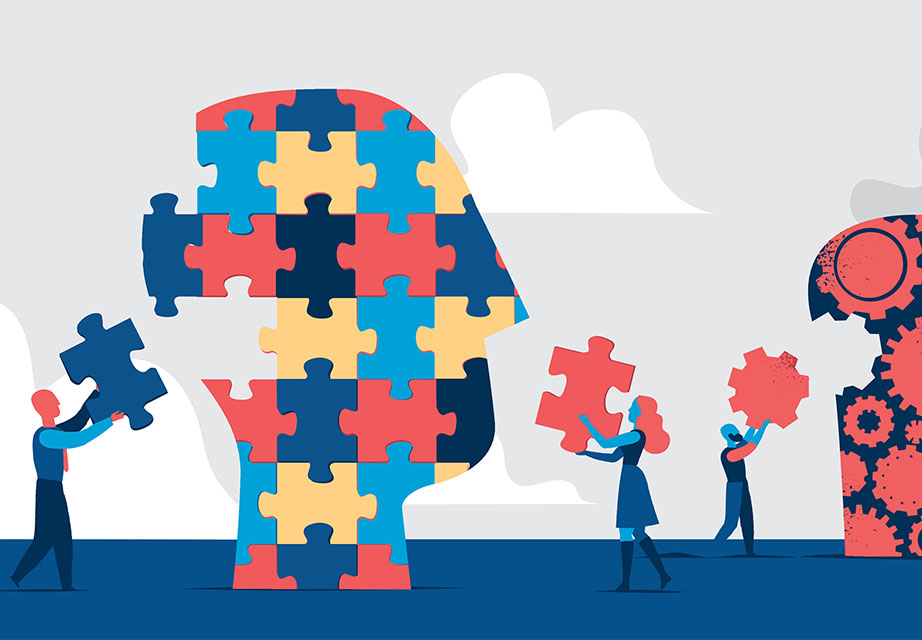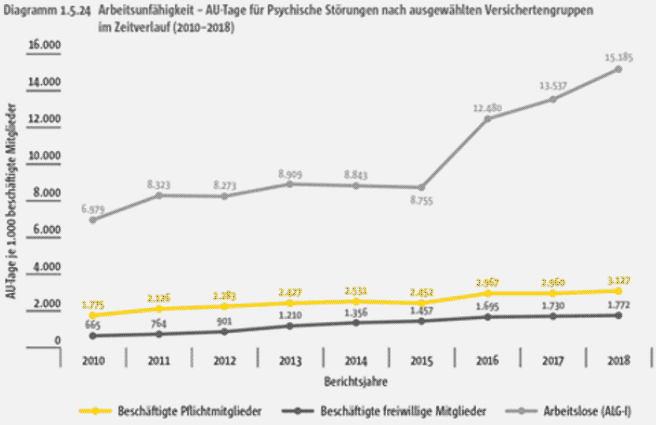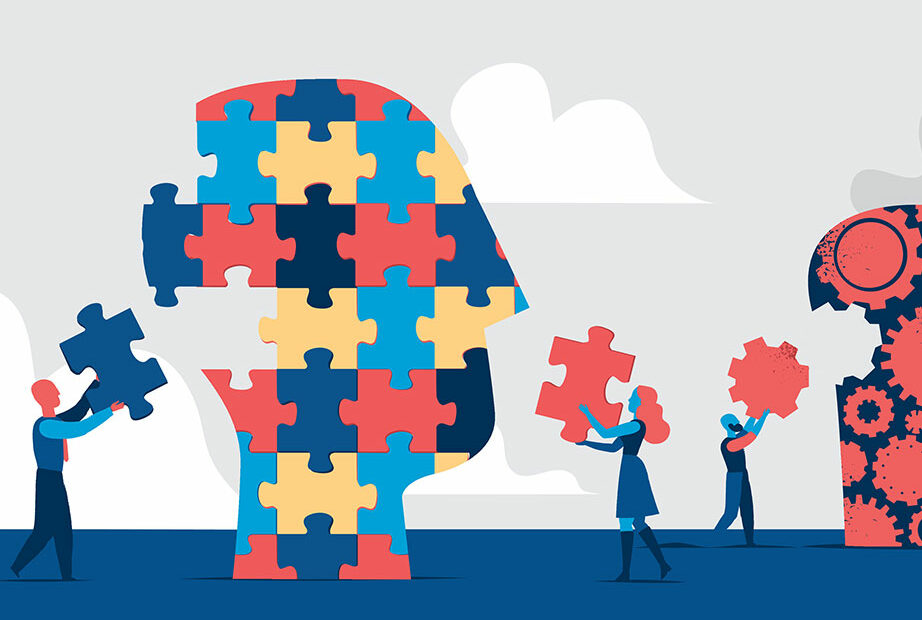Mental health
It is a key concern of employers that employees are motivated and healthy in their jobs. For this reason, companies are committed to designing working conditions in such a way that they prevent both physical and mental illnesses and maintain health.

©AdobeStock Hurca!
The psyche experiences more acceptance
Talking about mental health is still far from being as "normal" as talking about our physical condition. However, there is more understanding that body and mind belong together and that both need to be cared for. As a consequence, illnesses are recognised and treated earlier, better and more frequently.
Especially the last point unfortunately receives even more attention than the topic of psyche itself: The rise in diagnoses of mental illness in health and pension insurance statistics. It leads to the assumption that mental illnesses are on the rise almost explosively, all over the world. Fortunately, this is not the case.
Many studies, including those by the Robert Koch Institute, show that mental illness is not increasing in society (Knieps & Pfaff, 2020, among others). However, diagnoses are increasing and the number of those who are actually mentally ill is approaching. Accordingly, the change in work does not pose a risk to health - however, it does bring with it new or different stress factors, e.g. different work structures and new work equipment.
Mental illnesses can have a variety of causes
A mental illness (or disorder) is an illness-related change in experience and behaviour that affects perception, thinking, feeling and self-perception. The illness must be clinically diagnosed and is usually associated with suffering and disability in social and occupational life (see the classification systems for diseases ICD-10 and mental disorders DSM-5). Work is never the sole cause of mental illness (Windemuth, 2014). Mental illnesses arise, for example, from an interaction of our biology such as our disposition, social factors such as our private environment, and our coping strategies when conflicts arise. Typical illnesses are depression, anxiety disorders or alcohol addiction. Burnout is not a mental illness (not even according to ICD-11), but a factor that can influence the development of mental illnesses.So what role does work play in mental illness?
In principle, work has a positive influence on health and personal development. Beyond securing a livelihood, good work can be a source of meaning in life, self-confidence or satisfaction. In addition, work structures the course of everyday life for large parts of a person's life and enables social contact and recognition (Enste & Ewers, 2014). Numerous professional societies as well as patient organizations, such as the Stiftung Deutsche Depressionshilfe (German Depression Aid Foundation), support the statement that work, for example, supports the recovery from depression and can protect against an illness. However, incorrect stresses at work (such as permanent, high time pressure, constant interruptions to work or conflicts) can contribute to health problems and increase the likelihood of developing mental disorders.
Employers take the mental health of their employees seriously
For companies, the mental health of their employees is central. Because in addition to the desire for motivated and satisfied employees, it is clear that mental illness leads to lower performance, accident risks and absenteeism. Therefore, it is also the legal task and goal of employers to reduce hazards due to mental stress: Since 2005, hazardous mental stress factors such as high work pace as well as deadline and performance pressure continue to decrease. In a European comparison, mental demands are consistently lower than the EU average. A large proportion of employees in Germany (87%) also always or usually feel that they are doing meaningful work (Eurofound, 2015).
The social partners are also involved in the Joint German Occupational Safety and Health Strategy (GDA), which publishes practical tips and implementation recommendations on, among other things, mental stress factors at work. They are also active in the Verwaltungs-Berufsgenossenschaft's project "Mitdenken 4.0" (Thinking 4.0), where they develop information and assistance, e.g. on home office and accessibility. In addition, the BDA facilitates networks and platforms in which employers (associations) regularly exchange views on issues of mental health and good work design and maintain contact with researchers and experts.
"Public awareness of mental illness has increased enormously, especially in recent years. On the one hand, there are positive effects in that the broad public discussion has led to a greater awareness of the topic (...). On the other hand, however, this growth in the key figures of health care can easily lead to the assumption that mental and behavioural disorders have meanwhile assumed pandemic proportions. However, not only in Germany, but also in many other European countries, numerous studies have been able to show that the proportion of people affected by mental disorders has been stagnating or, in some cases, even slightly declining for more than a decade."
Facts and figures
Unemployment is associated with significantly higher absenteeism due to mental disorders compared to employment. Unemployed people receiving unemployment benefit I have on average around eight times the number of days of absence for mental disorders of employees. Source: BKK Health Report 2019: Mental health and work.










